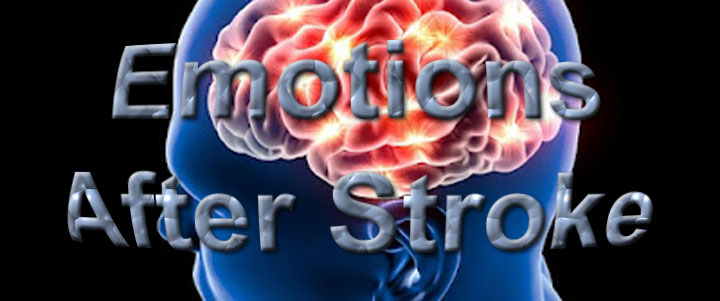Emotional responses to stroke are very varied indeed – and are influenced by a host of issues.
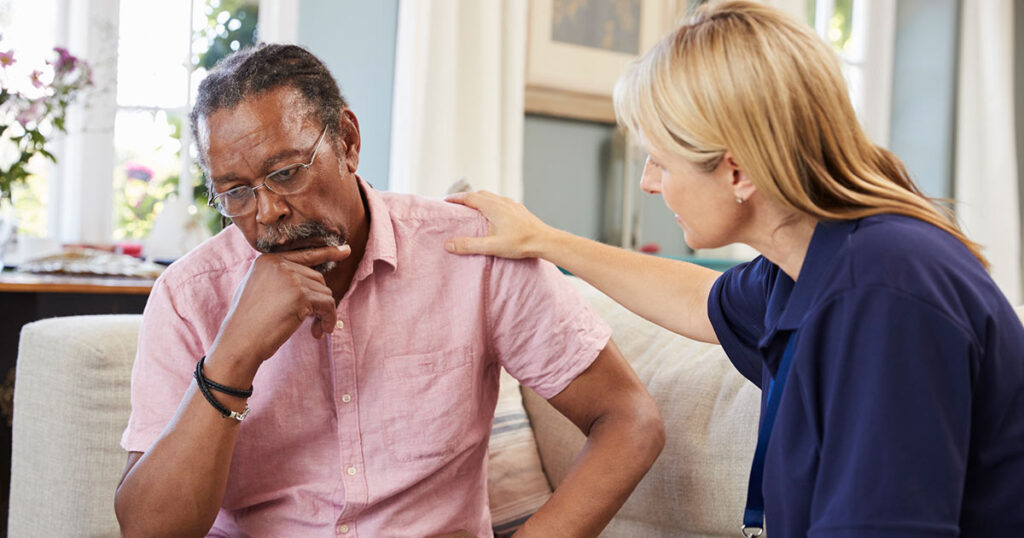 For example, by the severity of your difficulties and perceived losses, your individual coping style, your familial/social support network, your cultural beliefs about disability, and your previous mental-health.
For example, by the severity of your difficulties and perceived losses, your individual coping style, your familial/social support network, your cultural beliefs about disability, and your previous mental-health.
Some of the emotional and personality changes you may face are caused not only by changes that have taken place in your brain, but because of the ongoing emotional burden caused by your stroke.
It’s important that your family, carers and friends understand the more common possible emotional changes, in order to appreciate the way you express your feelings and thoughts about your stroke. It can readily be seen that ideally, they should receive advice concerning how to help you cope and how to cope themselves.
The idea is to help you take as many active measures to (emotionally) manage situations as you can.
 For example, it may be best to avoid crowds and stressful conditions, which may in turn make you feel overwhelmed. You can try learning relaxation techniques to help you combat any stress and fatigue you may experience after your stroke. There are lots of devices and apps to help you manage to bring emotions to an equilibrium over time.
For example, it may be best to avoid crowds and stressful conditions, which may in turn make you feel overwhelmed. You can try learning relaxation techniques to help you combat any stress and fatigue you may experience after your stroke. There are lots of devices and apps to help you manage to bring emotions to an equilibrium over time.
A big tip from me, as a successful stroke survivor, is that consistent physical re-training yourself with the help of an instructor AND by yourself)can potentially bring an increase in confidence and strength of mind, which can in time result in the feeling that you’re steadily ‘covering yourself with armour’ emotionally, with a potential result in the decline of ‘negative’ emotional changes. It certainly did for me, and I’ve seen it in many hundreds of people since.
It’s so important that you are helped to tackle emotional difficulties that you may be having – and it may take a specialist cognitive therapist to help you. This is because having difficulty coping with your emotions can impact you for years in many different aspects of your life. Linked to your emotional responses, the cascade of changes that have will have taken place in your brain during your stroke can alter your behaviour dramatically. For example, your character may have changed in some surprising ways.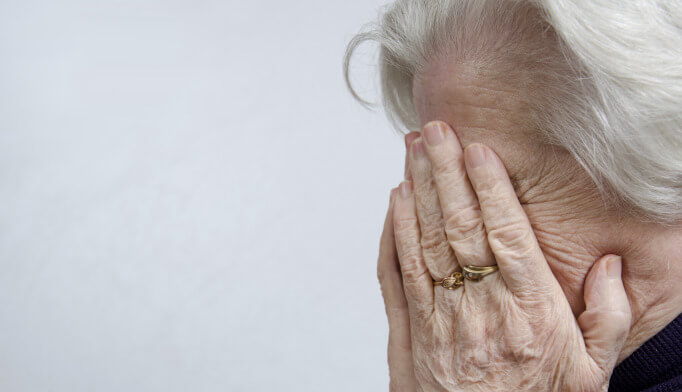
You may now be experiencing new, impulsive tendencies and poor judgements of your own safety and that of others. You may also be experiencing emotional lability. This is a condition where you have rapid and emotional changes in mood.
You may cry easily or laugh uncontrollably or display feelings of hopelessness, frustration, anger, aggressiveness, impulsiveness and other symptoms.
Apathy is another possible problem (more information from ‘Stroke’, 2013). where you may experience diminished goal-directed behaviour and you may go through periods where it seems like you feel nothing or not feel like doing anything at all. Diminished motivation, lack of emotion, interest, concern or enthusiasm to take part in your own recovery may be noticed by yourself and/or others around you.
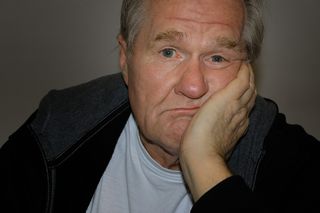 Apathy can have negative impact on your recovery of function, your ADLs, general health, and quality of life. It can stop you from enjoying your social connections and bothering to do things that you enjoy. If you develop apathy, it can also lead to a significant extra burden for your families, carers and friends… and worries them because it’s obvious how it will hold you back from potentially conquering/coping better w the situation you’re in.
Apathy can have negative impact on your recovery of function, your ADLs, general health, and quality of life. It can stop you from enjoying your social connections and bothering to do things that you enjoy. If you develop apathy, it can also lead to a significant extra burden for your families, carers and friends… and worries them because it’s obvious how it will hold you back from potentially conquering/coping better w the situation you’re in.
Depression is also amazingly common. Around a third of stroke survivors experience it after stroke (roughly the same percentage as those who suffer aphasia). Stroke survivors with suspected depression can be referred to a clinical psychologist by their GP. It’s very important for you, your family, carers and friends to be aware of depressive symptoms so you can receive the help you need, if required. Depression is classified as more than just being sad. You may feel worthless, hopeless, have little motivation to keep living, experience intense anxiety and you may even sleep more to ‘escape’. If you experience any of these feelings, please consult your GP immediately.
The Potentially Good News
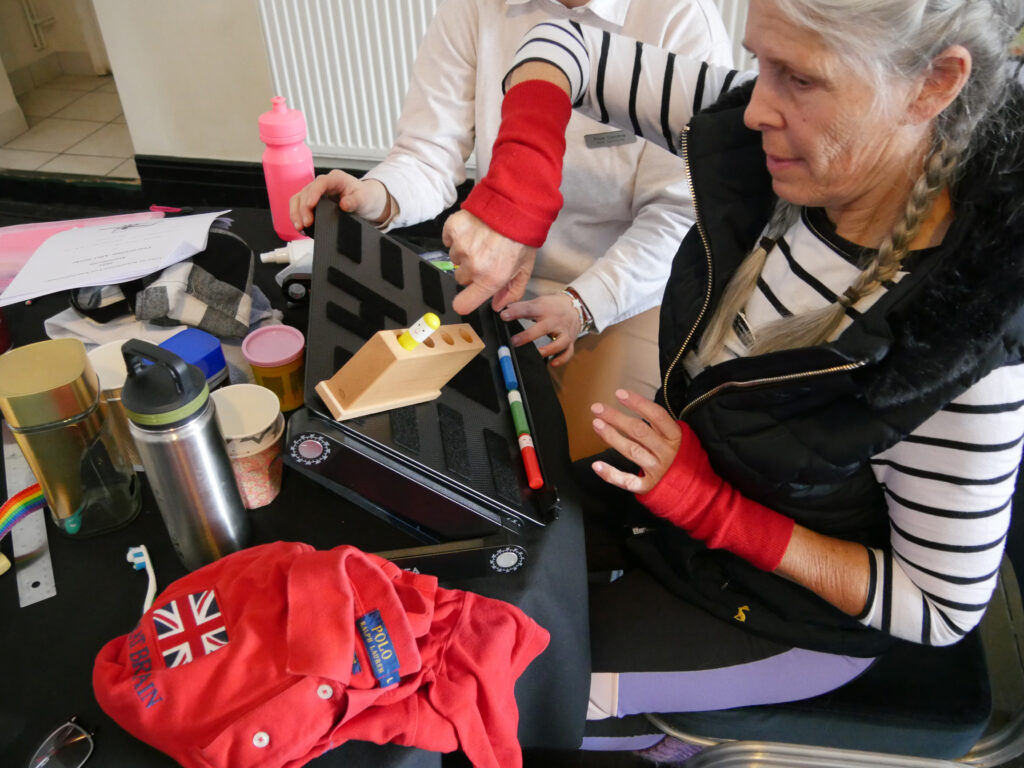 It can be easy to think that emotional changes will never improve, but research shows that you may well come to terms with the after-effects of your stroke, which may in turn help responses and mood to become more balanced.
It can be easy to think that emotional changes will never improve, but research shows that you may well come to terms with the after-effects of your stroke, which may in turn help responses and mood to become more balanced.
Please see my point above about the further possible positive effects of successful functional retraining. Moreover, if appropriate medication is administered to help you self-manage, your emotional balance may well improve to the extent that you won’t need to struggle.
Mood problems can impact engagement in retraining, adjustments to difficulties, reintegration to the community and vocations, and can result in higher care needs and increased mortality, including risk of suicide. Physiological changes in the brain can lead to new and exaggerated expression of behaviour.
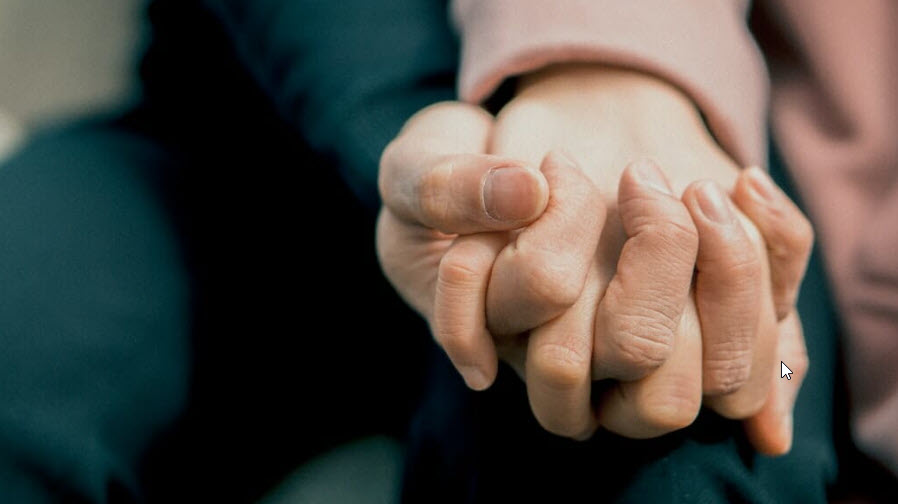 These are most likely to be experienced by those working with families and carers working with survivors with significant cognitive, communication and physical difficulties. Behaviours can range in severity and most usually have a function such as communicating a frustrated or unmet need. Families and carers have to come to understand these behaviours as best as they can.
These are most likely to be experienced by those working with families and carers working with survivors with significant cognitive, communication and physical difficulties. Behaviours can range in severity and most usually have a function such as communicating a frustrated or unmet need. Families and carers have to come to understand these behaviours as best as they can.
Partners in particular, who are now cast in what I’ve always thought of as the terribly impersonal role of ‘carer’, must understand that now it may well be a case of ‘one stroke, two survivors’. Moreover, there is a higher depression rate recorded in studies of caregivers to those with stroke too, particularly when those whom they’re caring for are severely dependent.
So, successful surviving after stroke -and successful re-integration into a good quality of life with a return to work perhaps, and/or a good quality of life – does require multifactorial on-going interventions – many of which need to be light-touch (and ‘get-able when required), but there nevertheless.
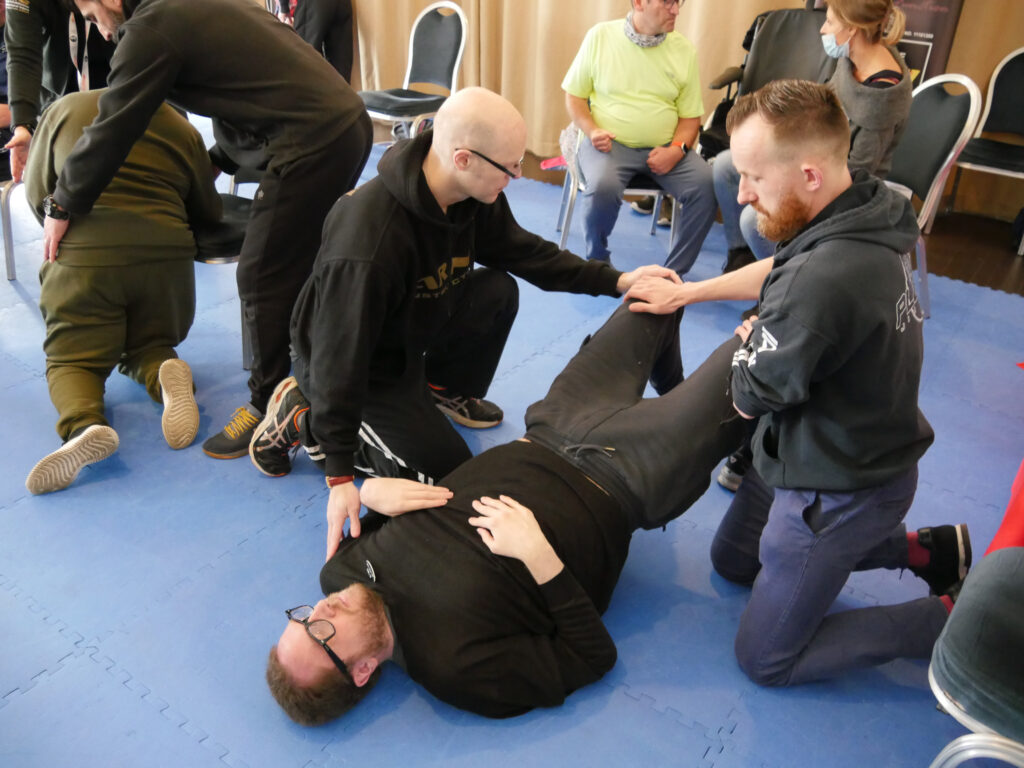 Consistent and positive support, such as that offered by an excellent therapist/trainer (a qualified ARNI Instructor being just one example) is a great way to start this, as such a person will come in to the home, offering an encouraging example of health and strength for the survivor to hopefully be motivated by, and will know many innovative strategies to trial with the person to help them be creative with their own recoveries.
Consistent and positive support, such as that offered by an excellent therapist/trainer (a qualified ARNI Instructor being just one example) is a great way to start this, as such a person will come in to the home, offering an encouraging example of health and strength for the survivor to hopefully be motivated by, and will know many innovative strategies to trial with the person to help them be creative with their own recoveries.
A survivor who starts to take ownership of their recovery as soon as they can is possibly more likely to start to take control of emotional issues which may be affecting them.
For example, a research study conducted back in 2011 to examine the effect of depression or apathy on functional recovery after stroke in 237 Japanese stroke patients found that:
‘an appropriate level of insistence on recovery may, in fact, be associated with reduced depression and apathy, resulting in enhanced recovery from stroke-related disabilities. Improvements in physical disabilities (trunk stability or activities of daily living, such as walking) also reduce depression and apathy. Therefore, the experience of post-stroke depression and apathy may be intertwined with various initial emotional responses and improvements in physical functioning. Effective treatment of post-stroke depression and apathy require a multidisciplinary approach, such that neuroanatomical/neurobiological, emotional, and physical (rehabilitation) domains are all addressed’..


